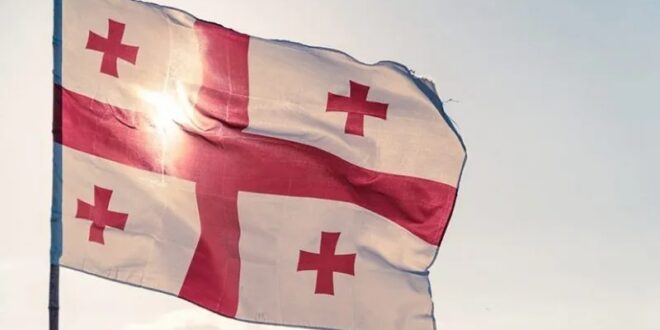The Georgian establishment may be said to anxiously look forward to the decision by the European Union (EU) on whether to grant candidate status to Georgia. However, the decision of the EU is awaited not only in Georgia. The process is most likely being proactively watched by Russia, which is now involved in perhaps the fiercest struggle with the West for influence in the post-Soviet space.
The geopolitical stakes in the South Caucasus are truly high, and not only because of the rivalry between Russia and the West, but because of the increasing role of the region for the EU in the backdrop of the war in Ukraine. The region is becoming one of the important alternatives to the Russia route of energy supplies for Europe. Most likely based on, inter alia, this factor, prominent Russian opinion-leaders like Alexander Dugin, and think tanks are openly calling on the Kremlin to correct its previous mistakes in the region and “act preemptively” against the western-leaning states.
The plans to integrate the former Soviet republics into the Russia-dominated Eurasian Union are not what is not buried, but seem to be filled with new content to make it more attractive. But hardly Russia, which pays a high price for the devastating war in Ukraine, will be capable of taking the role of Eurasia’s main economic locomotive in the foreseeable future.
But what Russia is still capable of doing so far, is to prevent, as much as possible, European integration for those countries in the region, which are closest to it. Georgia, which in 2022 received instead of a candidate status the “European Perspective” from the EU and homework for the status of candidate for membership, is such a country. This country has 22% of sovereign territories (Abkhazia and South Ossetia) occupied by Russia. The latter is now rapidly expanding its naval infrastructure in the harbor town Ochamchire in Abkhazia – just 20 kilometers away from Georgian-controlled territory. This move poses a potential threat to Georgia’s transit capabilities. Moreover, the Russian troops are deployed about 40 kilometers away from Georgia’s capital Tbilisi, and within a few hundred meters of a strategic East-West highway linking Tbilisi to Georgia’s Black Sea coast. Russian troops are in close proximity to the transit pipelines in Georgia that deliver energy carriers from Azerbaijan to Europe and elsewhere.
Russia-waged war in Ukraine revealed a high vulnerability of Georgia before the potential military and economic threats from Russia. Some circles in the EU may consider Georgia’s cautious attitude to Russia as a deviation from the Western values. But if remain adhered to the realistic attitude that was a difficult and painful option between the value-based policy and survival policy. So far, Georgia has managed to avoid another regional armed conflict on its territory, which would most likely force the West to intervene in some form, assuming an additional burden. And, there are no reliable indicators that Georgia’s the declared goal to become a part of the Euro-Atlantic space enshrined inter alia in the Constitution of Georgia, is under threat.
At the same time, it should be frankly admitted that in the last 2-3 years the relations between Georgia and the European Union have been undergoing some challenges, and currently these relations could have been far better. One of the apples of discord was the difference in the way the reforms have been implemented in various spheres, especially in the field of justice, as well as the quality of the implementation of the EU’s 12 priorities for the candidate status. This indicator is of particular importance based on the remarks by those high-ranking representatives of the EU who believe that the awarding status should be merit-based, primarily, bearing in mind the scrupulous implementation of the mentioned priorities.
However, there are some different opinions on this issue in the EU, and the one has been recently voiced by European Parliament President Roberta Metsola. “Make no mistake: Politically if a country looks to Europe, then Europe should fling its doors wide open,” she argued.
The EU candidate status is expected to be a major topic during Georgia’s parliamentary elections in 2024. Unfortunately, as usual in countries with transitional democracies, the issue of candidate status has become an instrument of domestic political struggle. Thus, it is quite expected that either refusal or consent of the EU to award the status will be used by the ruling party and the opposition in pursuing their own political and electoral interests.
For European leaders, this is a truly difficult moment. Understandably, the EU must focus on its rules and values when making decisions on Georgia. However, in this extremely complex geopolitical situation, given the Russian factor and a highly turbulent internal political situation in Georgia, Europe must also be thinking ahead. The second “NO” will further disengage Georgia from the EU- Associated Trio (Moldova-Ukraine-Georgia) with consequences that include a high probability of being preyed upon by Russia’s influence.
The benefits of the European Union granting Georgia candidate status outweigh the risks in these concrete circumstances. It’s safe to identify the three most tangible immediate benefits. First, significant de-polarization of the highly polarized socio-political situation in the country, which hinders inclusive EU-required reforms; Second – more assertive “positive pressure” upon the government and the opposition to work jointly for moving to the next step of the EU accession; third – curbing of the Russian “soft power” in Georgia.
On balance, the EU candidate status with strong and unequivocal directives, is highly likely to bring measurable outcomes in the mid and long-term perspective. The history of Georgia-EU relations shows that indecisiveness and political hesitation from the EU in the critical moments had proven to be a dangerous fallacy.
 Eurasia Press & News
Eurasia Press & News


